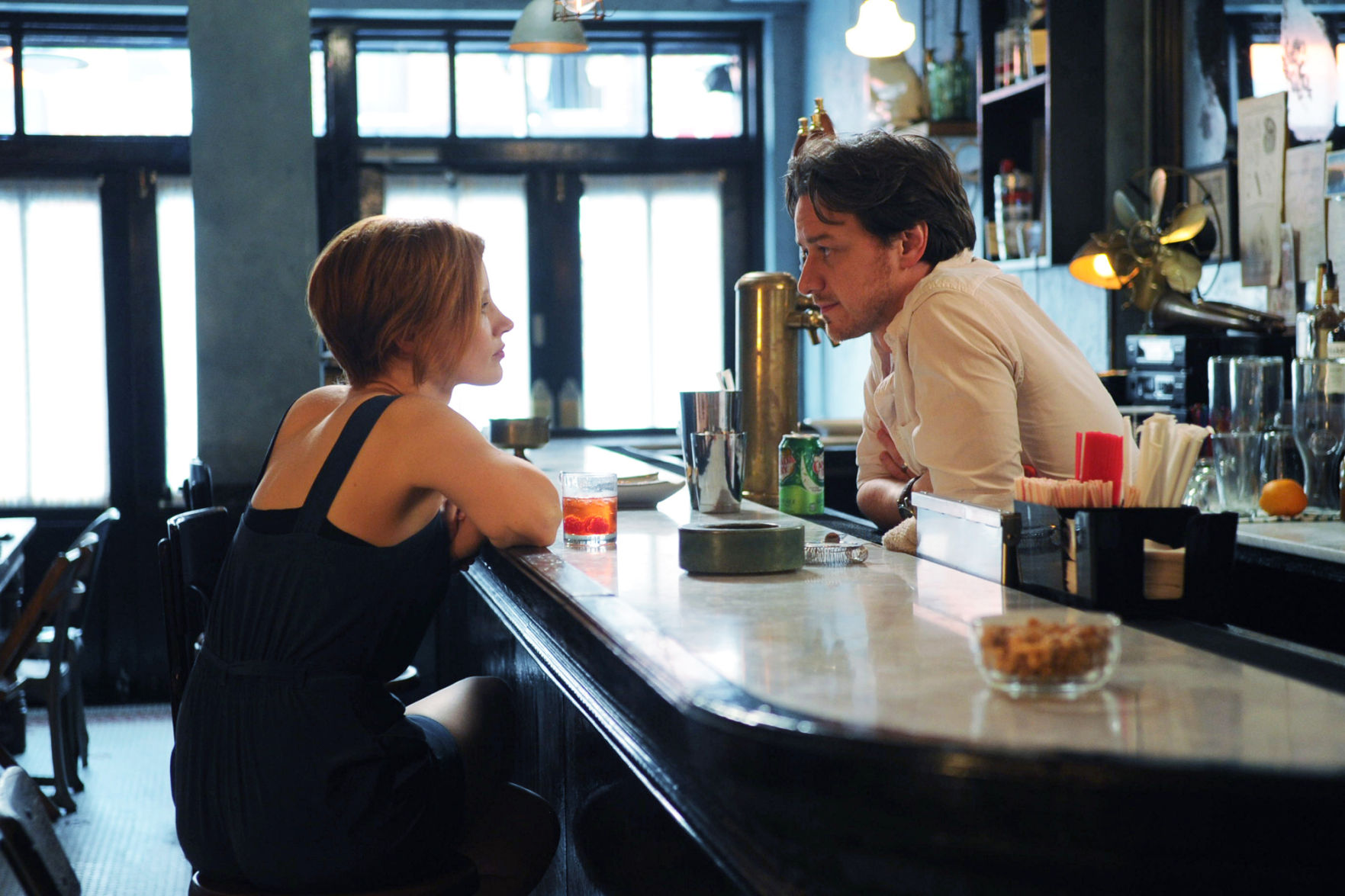
THE DISAPPEARANCE OF ELEANOR RIGBY
Be warned, Beatles fans: The Disappearance of Eleanor Rigby: Them has virtually nothing to do with the titular song. Nor, in fact, does that song appear anywhere in the movie, aside from a brief joke at a character’s expense.
Instead, The Disappearance of Eleanor Rigby: Them is a somewhat conventional relationship drama. Jessica Chastain (Mama) and James McAvoy (X-Men: Days of Future Past) star as a married couple going through a rough and emotionally devastating split following a personal tragedy.
One half of the film tracks Chastain struggling to find something to take her mind off her tragic past, while the other sees McAvoy’s personal frustrations colliding with his professional shortcomings as the owner of a failing restaurant.
For a movie with such a depressing plot, The Disappearance of Eleanor Rigby: Them manages to be a surprisingly charming and beguiling experience. It’s not to say that the film regards its lead characters or their traumatic breakup flippantly. Instead, the film surrounds its estranged leads with a colorful cast of supporting characters and fills much of their conversations with wisecracks.
All the bantering adds some context, if not levity, to the film, which prevents it from becoming mired in navel-gazing. For, as Viola Davis’ (Ender’s Game) snarky professor points out, we are just watching some financially well-off grown-ups fret with existential ennui.
Writer/director Ned Benson infuses his characters with enough depth and dimensionality to make their plight interesting and engaging, but only just so. A film stripped of The Disappearance of Eleanor Rigby: Them’s willingness to digress and meander would have been an intolerably self-absorbed experience.
Chastain’s and McAvoy’s performances also add texture and nuance to the film and smooth over rough patches in the script. Chastain, in particular, gives a standout performance of such startling and intense anguish that it’s almost impossible to look away.
The Disappearance of Eleanor Rigby was originally conceived as a two-part film — one from McAvoy’s perspective and the other from Chastain’s — but this Them cut mashes together the two separate films into a slightly unwieldy entity.
It’s incredibly easy, for instance, to tell which shots belonged to either version (all of Chastain’s scenes are tinted red, while McAvoy’s are tinted blue). Them also unfortunately relegates most of McAvoy’s story to the sidelines.
Directly compared with Chastain’s scenes, McAvoy’s moments register far less of an impact. Whether this is the case in the expanded versions remains unclear, but Them doesn’t make a particularly convincing argument for separating the perspectives in the first place.
While Them is a far less interesting film (at least conceptually) than the Him and Her edits, it tells the story of Chastain and McAvoy’s failed marriage well enough that there’s virtually no reason to watch the separate cuts after watching Them, aside from purely academic curiosity.



